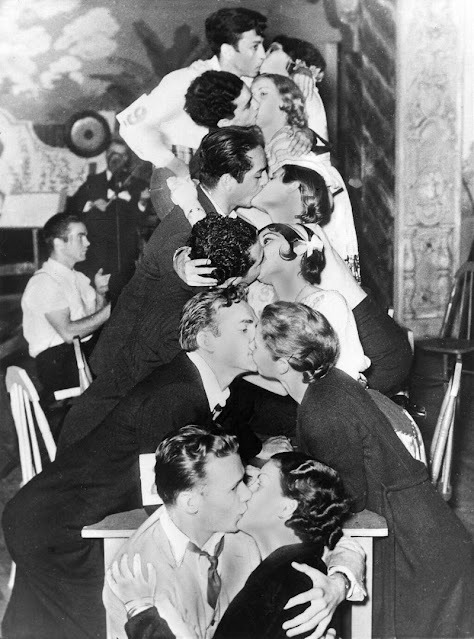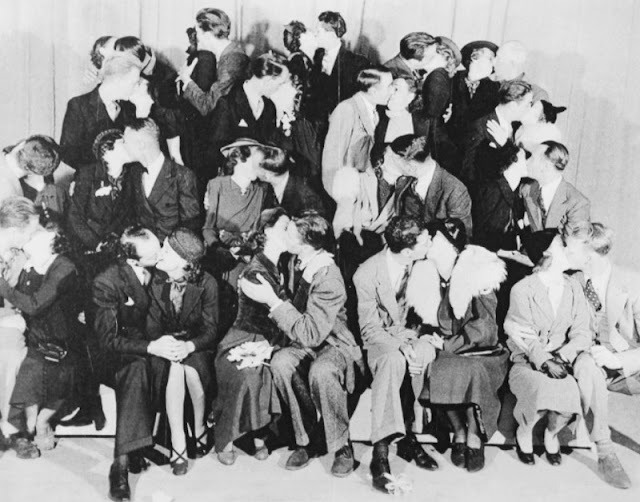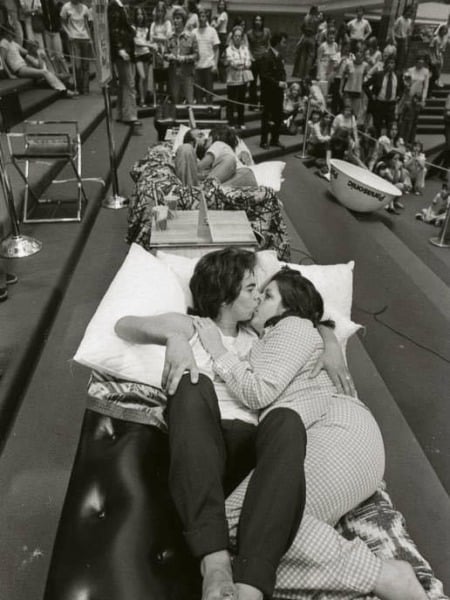The Bizarre And Amusing History Of Kissing Contests In The 1930s
The 1930s were a tough time due to the Great Depression, and communities turned to public events to escape their daily struggles.
Fairs, carnivals, and town gatherings became places where people could find a bit of joy, and kissing contests were part of this unique form of entertainment.
Novelty competitions, like kissing marathons or endurance-based events, drew in crowds looking for fun and a break from their worries.
These contests were less about romance and more about the spectacle. Couples would lock lips in front of cheering audiences, competing to see who could kiss the longest or with the most flair.
Let’s explore the curious history of these events in 1930s culture.
The rules and quirks of Kissing Contests

Kissing contests in the 1930s were simple—couples competed to see who could kiss the longest. But to keep the crowds entertained, these contests often added creative twists.
Contestants sometimes had to follow quirky rules, like staying perfectly still or dealing with distractions such as tickling or playful interruptions from the audience. These fun challenges made the contests more exciting and kept spectators engaged.
In some cases, judges would evaluate kisses based on style, duration, or flair. These events could last for hours, and the victorious couple would walk away with a small prize or local fame.
Cultural reactions: Fun or frowned upon?

While many people enjoyed the fun of kissing contests, not everyone approved. Conservative and religious groups often disapproved of such public displays of affection.
The idea of couples locking lips in front of an audience was sometimes seen as going too far, even for an era that often embraced novelty.
Despite this moral suspicion, these events flourished, especially in small-town America. The humor and boldness brought people together, creating a sense of community and shared amusement during tough times.
Why Kissing Contests faded away

By the mid-20th century, kissing contests became less common. As societal norms evolved, public displays of affection became less of a spectacle and more of a personal moment.
With the rise of television and cinema, people found new forms of entertainment that didn’t require public participation.
Today, kissing contests are a curious footnote in the history of public entertainment. They offer a glimpse into a time when communities came together.

